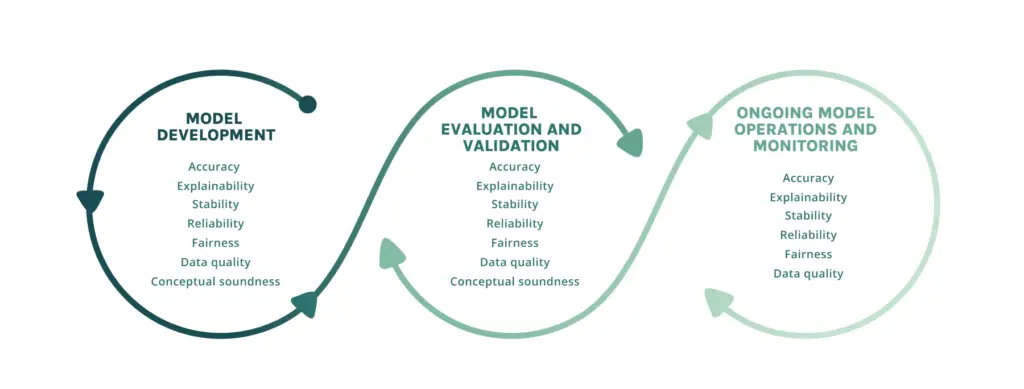The Role Of Data In Ai: Quality Over Quantity

In the realm of artificial intelligence (AI), data serves as the lifeblood, fueling the learning and advancement of AI models. However, the sheer volume of data available in the digital age has raised questions about the relationship between data quantity and AI performance. While it is commonly assumed that more data leads to better AI, this notion is not always accurate. In fact, focusing solely on data quantity can be detrimental to AI development, leading to models that are inaccurate, biased, and unreliable.

Quantity vs. Quality

The key to effective AI lies not just in the quantity of data but also, and perhaps more importantly, in its quality. High-quality data refers to data that is accurate, relevant, and free from bias. It is data that accurately reflects the real world and provides AI models with a solid foundation for learning. On the other hand, poor-quality data, which can be inaccurate, incomplete, or biased, can lead to AI models that make incorrect predictions and perpetuate harmful stereotypes.
Challenges of Big Data
The availability of massive datasets, often referred to as “big data,” has presented significant challenges for AI development. While big data offers the potential for more comprehensive learning, it also introduces the risk of data noise and inconsistencies. The sheer volume of data can make it difficult to identify and extract meaningful patterns, leading to models that are complex and difficult to interpret. Additionally, big data often contains biases and errors that can be amplified by AI algorithms, resulting in unfair or inaccurate outcomes.
The Need for Data Quality Management
To address the challenges of big data and ensure AI models perform effectively, it is crucial to implement robust data quality management practices. This involves employing techniques such as data cleansing, data validation, and data normalization to identify and rectify errors, inconsistencies, and biases in the data. It also requires careful data selection and feature engineering to extract the most relevant and informative features from the available data.
Quality Data Leads to Better AI
AI models trained on high-quality data demonstrate superior performance and reliability. They are more accurate, less prone to bias, and more robust in handling new and unseen data. By focusing on data quality, AI developers can build models that are trustworthy and provide valuable insights, enabling AI to fulfill its potential in solving complex problems and driving innovation.
In conclusion, while data quantity is important for AI development, it is the quality of the data that ultimately determines the success of AI models. By prioritizing data quality over quantity, AI developers can create models that are accurate, reliable, and fair, unlocking the true potential of AI to drive positive change in the world.# The Role of Data in AI: Quality Over Quantity
Executive Summary
In the realm of artificial intelligence (AI), data is the lifeblood that fuels its learning and decision-making processes. The quantity of data available for AI algorithms to train on has grown exponentially in recent years, thanks to the proliferation of sensors, digital devices, and online platforms. However, the sheer volume of data is not the only factor that determines the effectiveness of AI models. The quality of data is paramount. In this article, we delve into the intricate relationship between data quality and AI performance, exploring how high-quality data can empower AI algorithms to deliver more accurate and reliable results.
Introduction
Artificial intelligence (AI) has emerged as a transformative technology with the potential to revolutionize industries and redefine human experiences. At the heart of AI’s remarkable capabilities lies data. AI algorithms are designed to learn from data, identifying patterns and extracting insights that enable them to make predictions and decisions. The quantity of data available for AI training has expanded rapidly, yet it is not merely the abundance of data that matters. The quality of data plays an even more crucial role in determining the accuracy, reliability, and effectiveness of AI models. In this comprehensive guide, we explore the significance of data quality in AI and provide actionable insights for organizations seeking to harness the full potential of AI.
The Importance of Data Quality in AI
The quality of data used to train AI algorithms directly influences the performance and accuracy of those algorithms. Here are five key aspects that highlight the importance of data quality in AI:
1. Bias and Fairness
- Biased data can lead AI algorithms to make unfair or discriminatory decisions.
- Ensuring data is representative and unbiased is crucial for fair and ethical AI.
2. Accuracy and Reliability
- AI algorithms are only as accurate and reliable as the data they are trained on.
- Data quality issues like missing values, outliers, and noise can adversely affect AI performance.
3. Generalization and Transferability
- High-quality data enables AI algorithms to generalize knowledge and adapt to new situations.
- Poor-quality data can limit an algorithm’s ability to transfer learning effectively.
4. Robustness and Resilience
- Data quality affects the robustness and resilience of AI algorithms against adversarial attacks.
- Robust AI algorithms can withstand attempts to manipulate or deceive them.
5. Efficiency and Scalability
- Clean and well-structured data improves the efficiency of AI algorithms during training and inference.
- Scalable AI systems require high-quality data to handle large volumes effectively.
Conclusion
Data quality is a fundamental pillar of successful AI implementations. Organizations that prioritize data quality will reap the benefits of more accurate, reliable, and effective AI models. By investing in data quality initiatives, businesses can unlock the full potential of AI, driving innovation, improving decision-making, and achieving tangible business outcomes. Embracing a data-centric approach to AI development paves the way for responsible and trustworthy AI applications that serve humanity for the better. Embrace data quality – it’s the key to unlocking AI’s true potential.
Keyword Phrase Tags:
- data quality in AI
- AI data quality
- importance of data quality in AI
- high-quality data for AI
- data-centric approach to AI

Fascinating post on the criticality of data quality for AI success. I’d love to learn more about techniques for enhancing data quality and ensuring that AI models are built on the highest quality data
While the article raises valid points about data quality, it fails to address the ethical implications of data collection and usage. The commoditization of personal data must be taken into consideration when discussing the role of data in AI
Informative read! Data preparation and cleaning are essential steps often overlooked in AI development. I recommend exploring automated data cleansing tools and techniques to streamline the process
I agree that data quality is paramount for AI, but let’s not forget the importance of algorithmic efficiency. AI models can be hamstrung by computationally expensive algorithms, so choosing the right algorithms for the task is crucial
Of course, data quality is essential for AI. It’s like building a house on a crumbling foundation – no amount of AI magic can compensate for bad data
Data quality is essential for AI, you say? Well, duh! Who would have guessed? Thanks for this groundbreaking revelation
What do you call an AI trained on low-quality data? A data disaster!
The relationship between data and AI is like a marriage – they need each other to thrive. Just as a good marriage requires trust and communication, AI requires high-quality, reliable data to make accurate predictions
I wonder if there is a relationship between the quality of the data and the complexity of the AI model. Perhaps simpler AI models can perform adequately with lower quality data
The article overlooks the challenge of data integration and harmonization, which can be a significant obstacle in ensuring data quality for AI. Different data sources often have different schemas and formats, making it difficult to combine them into a cohesive dataset
This article provides a solid foundation for understanding the importance of data quality in AI. I’m eager to explore further research on this topic and learn about best practices for data quality management
For those interested in implementing data quality practices, I recommend checking out open-source tools like DataCleaner and OpenRefine. These tools can help automate data cleaning and improve data quality